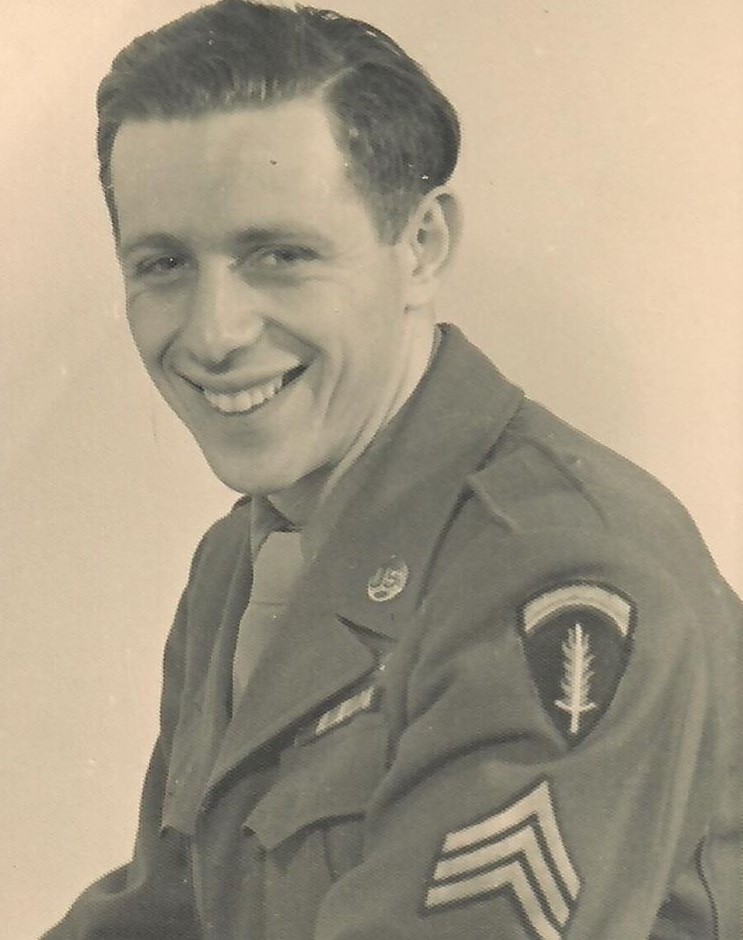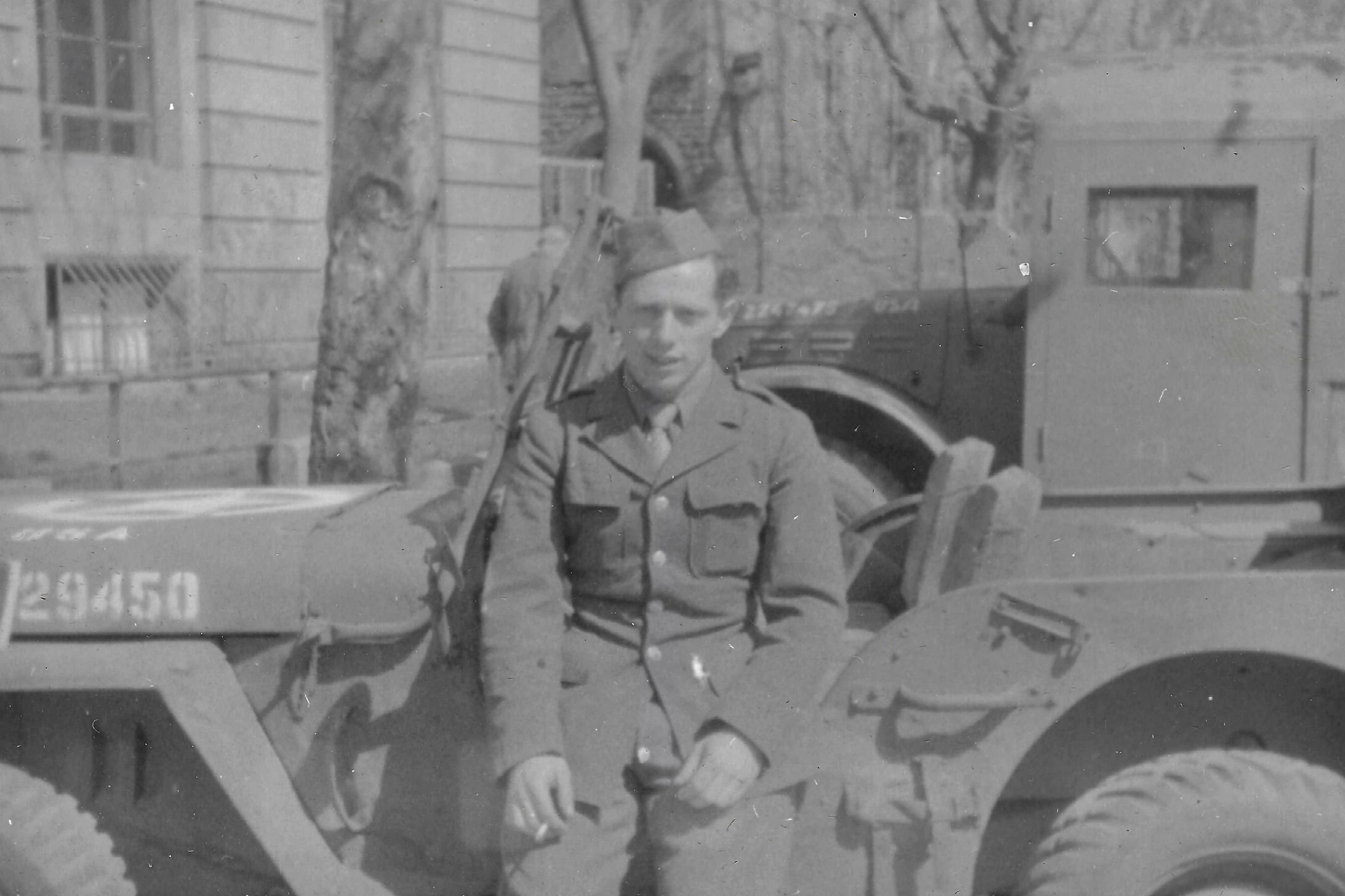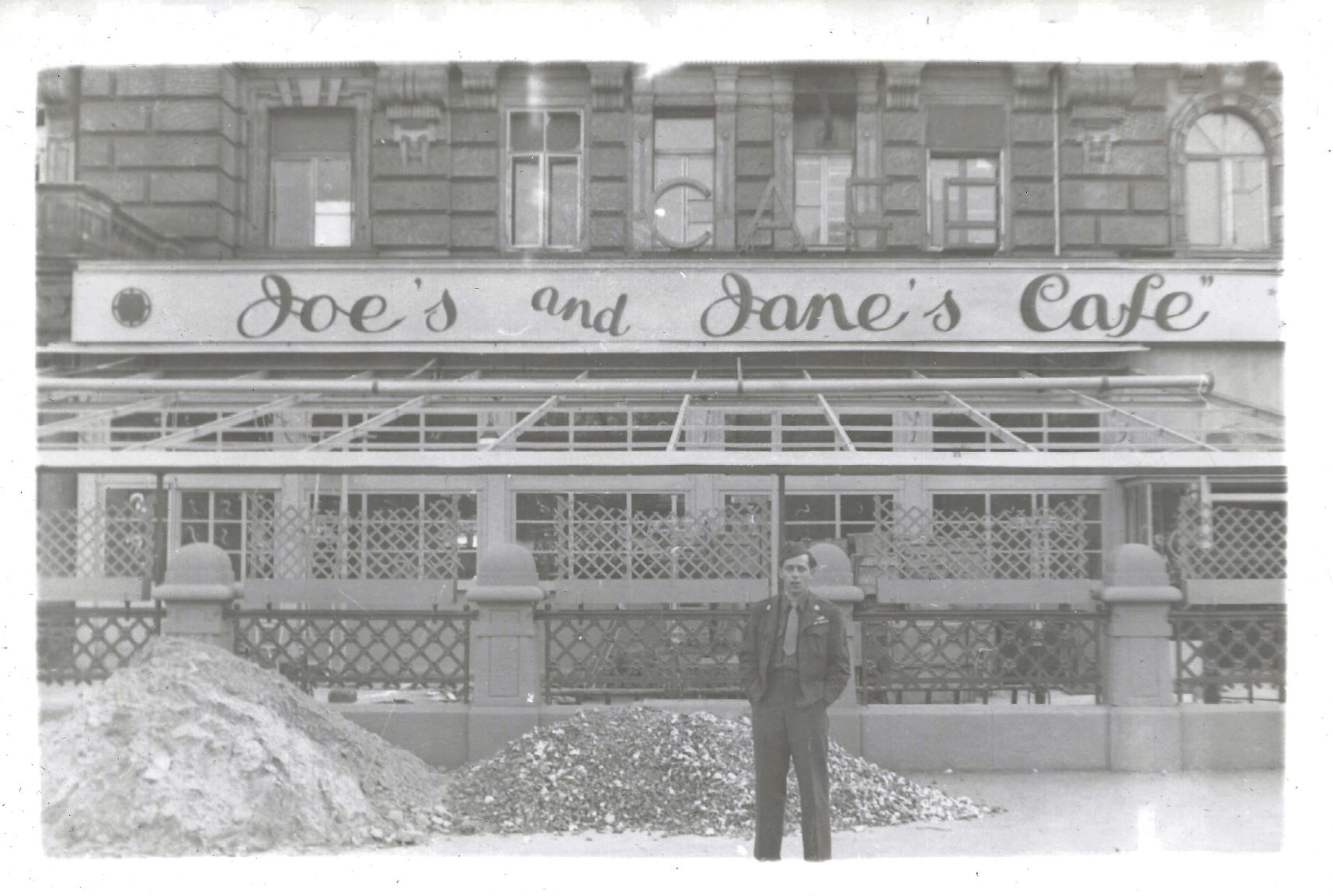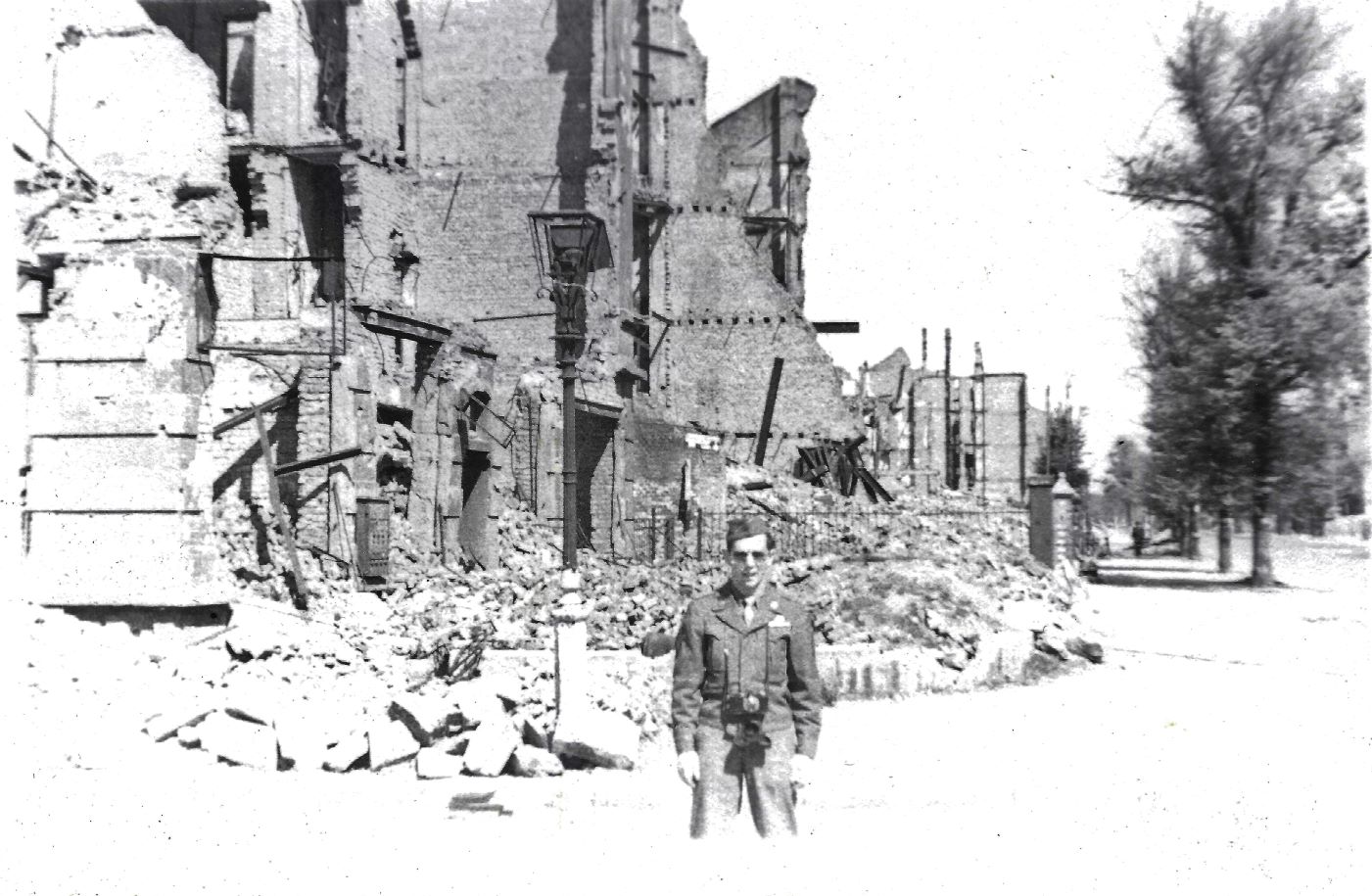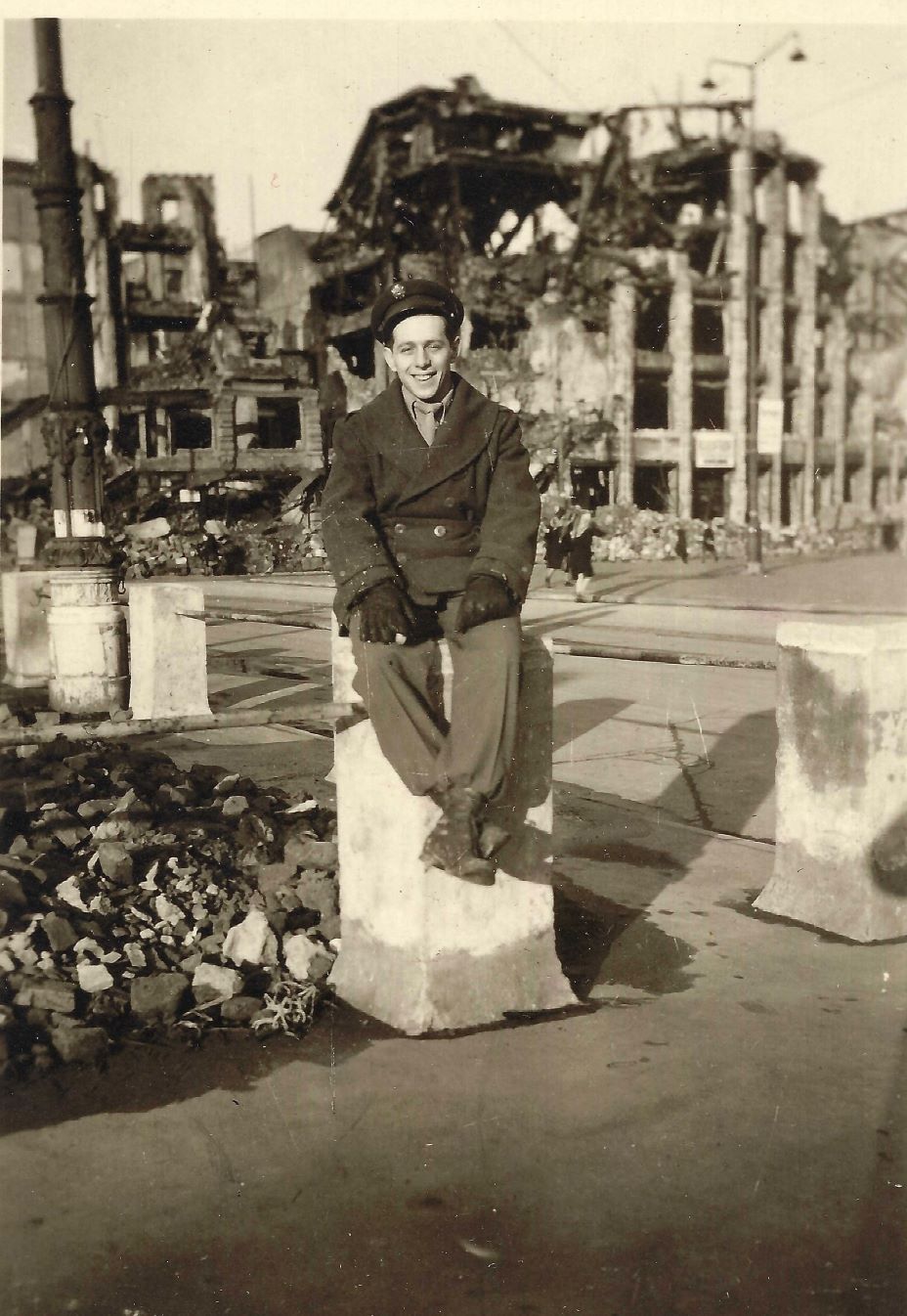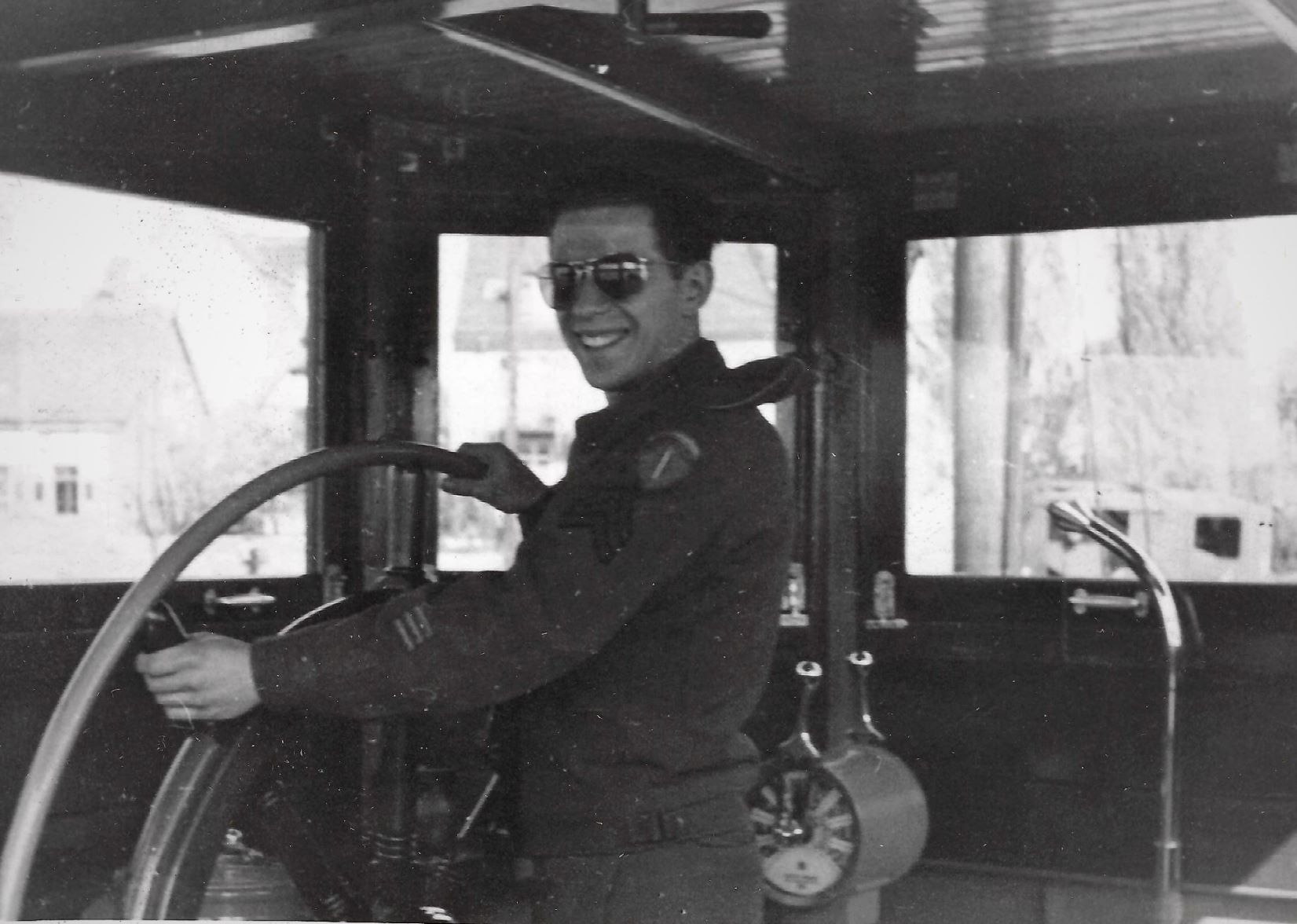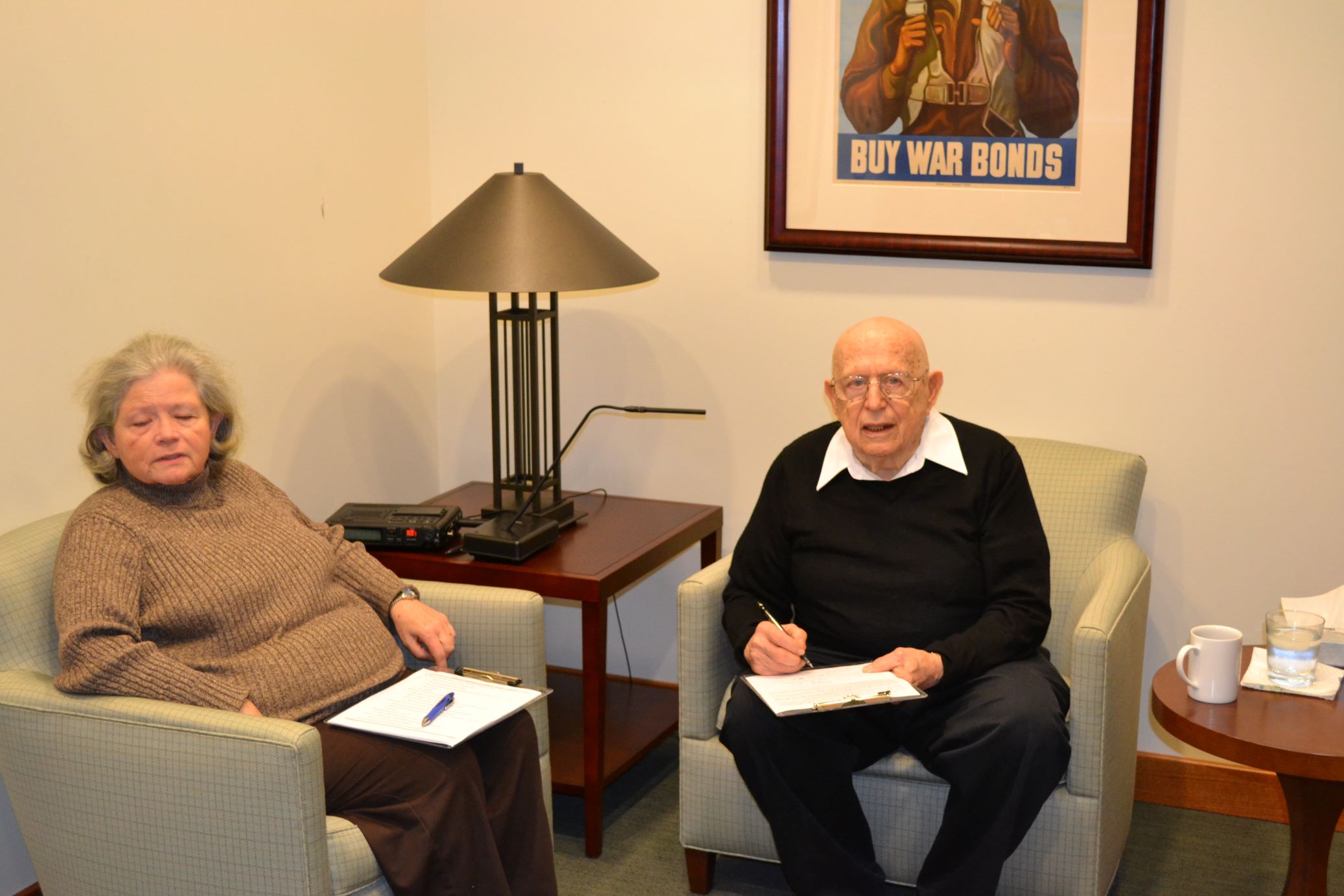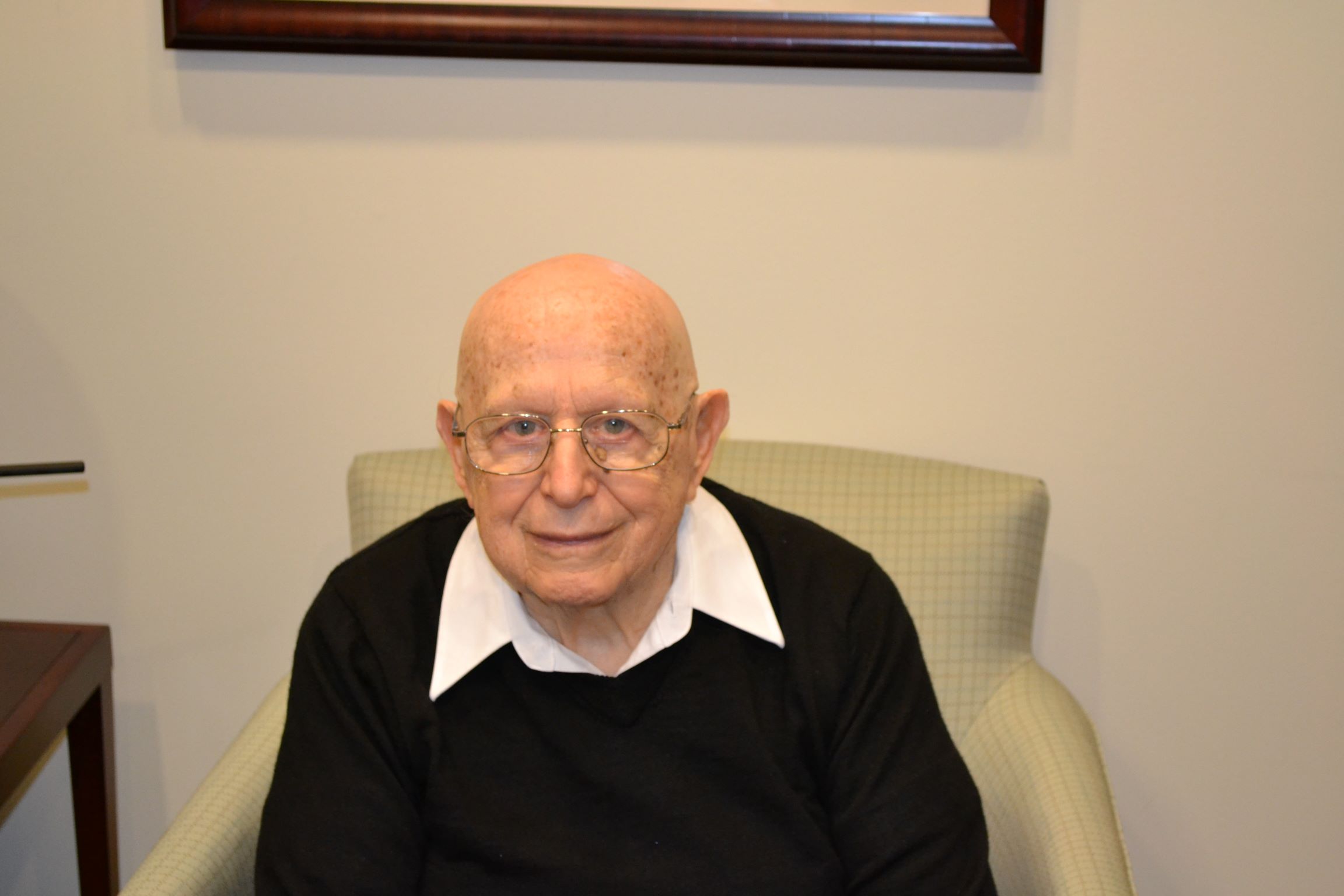Record date:
Philip A. Levine Transcript.pdf
Philip A. Levine, PFC
Philip A. Levine “A guy like me, he’s got to do it…You can get hurt, but it’s a job.” With self-deprecating humor, Philip Levine shares his experiences as a combat soldier and as a Jew during World War II. He further describes his adventures when serving in the Office of Fiscal Director, during the US Army of Occupation in Germany, in 1946.
Born in 1925, Philip A. Levine grew up in the Austin neighborhood in Chicago. Levine recalls his parent’s hard work, running a bakery, among other jobs, during the Depression. He enjoyed a pleasant childhood, trying out different sports. Yet, in spite of the attack on Pearl Harbor, or awareness of his father’s service during World War I, Levine experienced a kind of “divorce” between World War II and his everyday life. The US Army though had other plans.
Levine was drafted in April 1944, when he was eighteen years old at college, and was shipped out to basic training in Little Rock, Arkansas. He was trained to use M1 Garand, a semi-automatic rifle, small mortar, and other weaponry. He found marches challenging due to his short legs. After having grown up in a Jewish neighborhood, he was surprised to meet Cajuns from Louisiana who had never met a Jew. While he felt his ability to hide from his peers ‘saved’ him, he was explicitly passed over for Officer Candidacy School because of his religion. His boot camp coincided with the D-Day invasion, but he admits that he and the other soldiers did not understand the weight of it. Next Levine trained as an Army Scout the with 103rd Infantry Division at Camp Howze, Texas, which was being prepared to be shipped to Europe. Especially after learning of the death of a friend in another military unit, he was relieved to have been assigned to the Intelligence and Reconnaissance squadron, which as part of the battalion headquarters was located at the rear. Levine and the other Army scouts learned skills such as map and compass-reading, terrain navigation, and driving Jeeps.
Marseilles, France was Levine’s first duty station. Since by the time they arrived, the port was in Allied hands, their main job was protecting US supplies on landing crafts from pilfering by local French black marketeers. Shortly later, he was sent to the Vosges Mountains, in the foothills of the Alps, near Switzerland. Located just above the town of Saint Dié, the area was forested and only sparsely settled. The scouts moved ahead of the unit, establishing listening posts and warning of impending enemy movements. Levine feels that he lucked out having been located south of the Battle of the Bulge. This did not mean, of course, that he did not encounter numerous dangerous situations. Indeed enemy shelling of Baker Company resulting in tree bursts with shrapnel flying through the air, sent him in search of a hole in which to hide. He expressed sorrow for the “three-day wonders” who were not so fortunate. Another time when doing night patrol on a railroad embankment near Heidelberg, he heard a bang, waking up to find his leg injured. He was hospitalized in England and enjoyed a two-week leave until mono caught up with him, and he was then hospitalized again. By the time he was released from the hospital the second time, the 103rd Division had been shipped back to the US as the war in Europe was over. Perhaps because of his year of college majoring in accounting, he was next assigned to the Office of Fiscal Director at the IG Farben Building in Frankfurt, Germany, as part of the US Army of Occupation. While the Office was working hard to prevent the black market activity, he and his comrades were doing their utmost to bilk it. When his mother learned of this scheme, she put down the kibosh. Levine says, “ I could hear her screaming all the way to Europe.” In the interview, Levine recounts experiences that he found meaningful. For example, he warmly describes a Passover seder led beautifully by the Protestant chaplain shortly after his unit crossed into Germany at Wiesbaden. He saw too, that by the end of the war, the average German soldier was as done with it as he was. For example, a German Prisoner of War whom Levine was guarding promptly gave him his gun after it was briefly misplaced when the candlelight was extinguished during a nearby explosion. After the war, Levine attended Northwestern University to study business and accounting and went on to teach at the university. Levine notes that, unfortunately, some CPA positions were limited to him because of anti-Semitism and his Jewish identity. Eventually, he went on to open his own accounting firm, which he later passed on to a junior associate. He was married to his beloved Shirley for over 60 years. Together they raised two sons and spoiled four grandchildren.
While Levine does not consider himself to have been a stellar soldier, he always understood that it was his responsibility to heed the call to serve, regardless of the circumstances.










